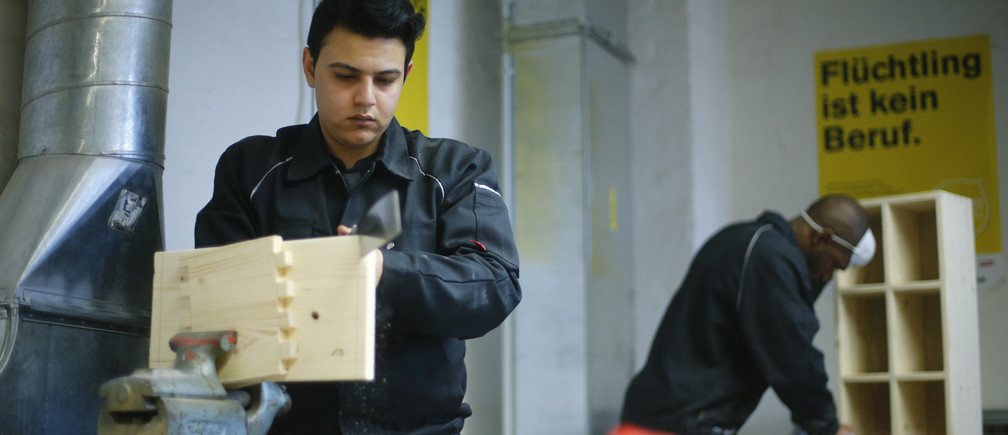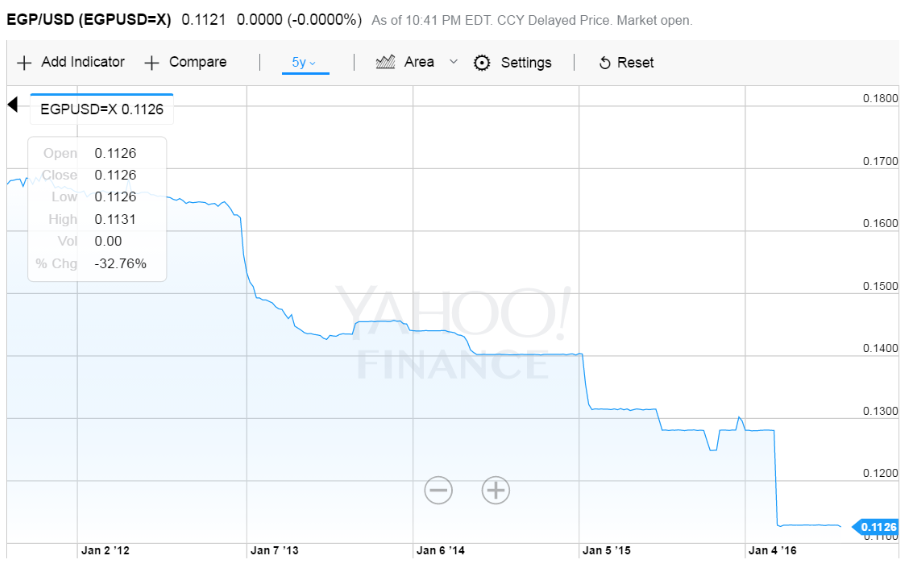
Few people, even among their most ardent detractors, would argue with a straight face that Muslim Brotherhood supporters, with all their shortcomings, are being treated fairly right now: an apparent compassion deficit has meant that, despite apparent injustice, Egyptians are largely unlikely to find in themselves any understanding or favorability towards the Islamist group’s supporters.
A dozen protesters were given an express trial and handed a seventeen-year sentence for allegedly attempting to break into the Al-Azhar headquarters – a sentence so inexplicably severe that the tongue-in-cheek joke in Egypt was that “had they killed the policemen who arrested them, they might have gotten a lighter sentence.” Dozens of tenured university Brotherhood-affiliated professors, or those who simply sympathize with the outlawed group have been arrested on flimsy charges, and are being fired from their institutions on account of “inexcusably absences.” Kids have been beaten up at school by their peers for their parents’ political affiliation.
Deposed president Mohamed Morsi is being prosecuted by the military regime that removed him, is guarded by the ministry of interior that killed protesters he is accused of failing to protect, while Mubarak-era appointed magistrates will judge him: the farce is obvious to anyone who doesn’t suffer from selective blindness. Perhaps theatrics are the end goal. Having seen the plummeting public interest in the Mubarak trial, it is safe to assume that after a few court sessions, a few shouting matches between Morsi and the judge about the dress code, and severalsubsequent adjournments, the trial will ultimately end up at the bottom of page 4 of the newspaper.
Most puzzling, however, is not the ethical aspect of the process, nor the charade’s likely outcomes. Most fascinating is the fact that, despite a generalized realization of foul play, there is a deafening silence when it comes to pointing out the obvious flaws in the due process these individuals are granted, regardless of one’s opinions or feelings regarding their political affiliation.
Though one might have hoped for marginally better treatment of the subject of Morsi’s trial by state and independent newspapers, they are, by and large, content to adopt sensationalist headlines, offering only simplistic coverage, with little analysis or commentary if any.
Even more puzzling is the perspective of the man on the street: aside from extremists on either side – those who want to sanctify Morsi and those who want his scalp – the general reaction from Egyptians has been to glance over the news, seeing the trial almost as an inevitability, like bad weather – and like bad weather, it has seemed almost unworthy of discussion beyond a sulk and an indifferent shrug.
This lack of sympathy can be explained by a trifecta of reasons – voluntary, exclusionary, and general.
The voluntary, first. Caricatures abound representing a person, the average Egyptian, being tugged on either side by the army and Islamists, accused by each for siding with the other if he so much as opens his mouth. And there is much truth to that image. In a climate rife with accusations of treason, it has become impossible to espouse a view even marginally different from the dominant narrative. No “buts” accepted. The rational course of action is then to remain silent.
Muslim Brotherhood supporters are also to blame for maintaining anunwelcoming, exclusionary platform to ad-hoc supporters. They can, however, be partially excused. It is natural that Brotherhood members, faced with a barrage of societal rejection, would clam up, seeking to create a ‘secure’ environment, less exposed to outside criticism – but also inhospitable to outsiders.
There have been feeble attempts to rebrand the Raba’a protest movement as separate from the Muslim Brotherhood – using the black-and-yellow four-fingeredRaba’a signs in protests instead of Brotherhood insignia, as one example. The rebranding a failure, it was promptly abandoned, with supporters reverting to exclusionary slogans, going as far as tagging “Egypt is Islamist” on churches, and once tainting the entire protest movement with all the Muslim Brotherhood’s reputational baggage. Even the Brotherhood’s traditional gender-segregated style of protesting – men in the front, women in the back – is making a comeback, after weeks of disingenuous PR that would, for example, focus on publishing photos of the minority of unveiled women at protests, to appeal to a larger (and hopefully, foreign) audience.
It comes as no surprise that few are prepared to associate with Muslim Brotherhood supporters, after months of constant displays of violence, and deliberately traffic-paralysing sit-ins in main avenues. They and their protests have become a despicable sight to many Egyptians, even among those willing to acknowledge that the killing of hundreds of Morsi supporters should not be swept under the rug.
The deliberate and unwillful result of those actions is that the Venn diagram of Brotherhood supporters, the Raba’a protesters, and the most vocal detractors of the Brotherhood’s persecution by the state, is effectively a circle, or nearly so.
But there’s a final underlying – and more concerning – reason. Let me give an example from outside of this political dispute. Last Thursday, the government closed down one of Egypt’s most famous mosques, which houses the mausoleum of Al-Hussein ben Ali, the Muslim prophet’s grandson and a figure revered by Shi’ites around the world. The move appeared to have little purpose, beyond spiting the handful of Egyptian Shi’ites who would visit the mosque to commemorate Ashoura.Society’s silence in response was as deafening as the response given to the Brotherhood’s treatment.
Shi’ism, a strain of Islamic of millennial presence in Egypt, is deeply embedded in the Egyptian religious practice. The majority of Egyptians who stood idly as an injustice befell co-religionaries with whom they only have minor differences, are even more likely to remain silent – or even nod in agreement – as injustice sweeps away their political adversaries.
Egyptians seem to suffer from a generalized compassion deficiency and a state of acute avarice, unwilling to extend the same privileges and rights they take for granted. Even among self-proclaimed liberal parties – a misnomer if ever there was one – perhaps the term ‘non-Islamist parties’ is a more appropriate epithet – the failure to point out obvious injustices is widespread.
There’s a nagging temptation, as a friend suggested, to sit back, with a bucket of popcorn, and watch as two parties, equally toxic to Egypt’s future, spar. But the truth of “first they came for the Muslim Brotherhood, and I didn’t speak out because I wasn’t Muslim Brotherhood” requires a societal awakening to the simple fact that a nation may not call itself civilized if it does not extend the same rights to all, and does not defend those in no position to do so.
First published in Egypt Source.



